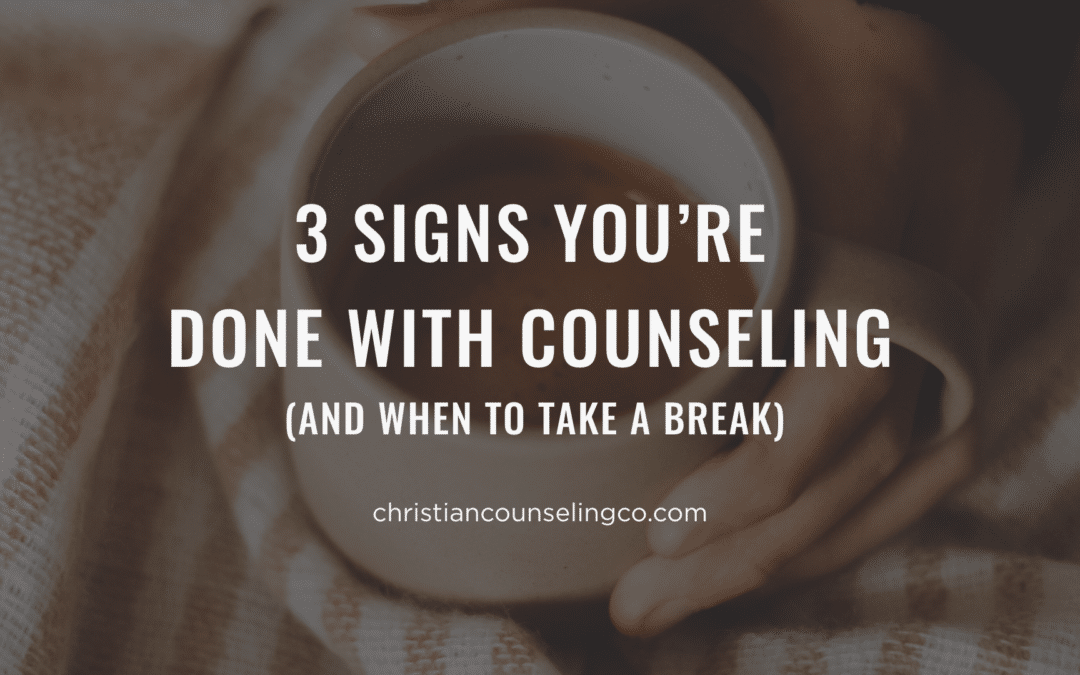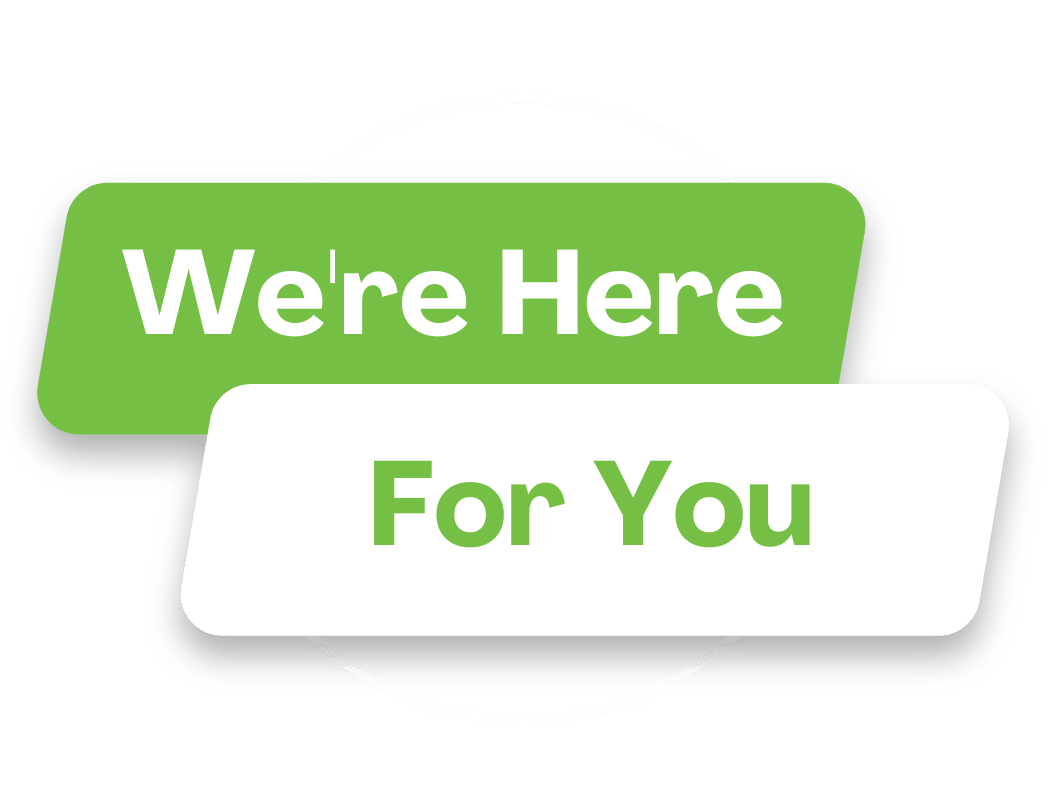There are so many blogs and tips on how to know when it’s time to start therapy, but what about when to end therapy? How do we know when we are done with counseling, would benefit from a break, or need to switch therapists? Read on to find out!
3 Signs You’re Done with Counseling
1. You have less and less to bring up with your therapist. It feels like things are going really well, and you find yourself racking your brain for what to talk about in session.
2. You feel better! Your symptoms have been steadily improving (i.e. you’re going outside more, you’re engaging with friends and making time for activities you love to do, you’re sticking with your boundaries, dreading your job less, etc.)
3. You’ve accomplished all of your set goals! Accomplishing all of the goals from your treatment plan can feel so exciting (and maybe a little scary!). This is a good time to evaluate whether you want to set more goals (and if your therapist is still the best fit to help with these new goals), or if you’re happy with the progress you’ve made and want to be done with counseling.
Times to Consider Taking a Break from Counseling (or from the therapist you’re seeing)
1. There’s more you want to achieve in therapy, but you don’t feel that you are moving in the right direction. Perhaps you’ve achieved your initial goals, but when you set new goals, your therapist feels they aren’t the right fit for you anymore (or vice versa). This happens! Sometimes an individual is doing better personally but wants to start couples therapy, or they learn they have OCD and want to see someone who specializes in that. There’s nothing wrong with switching therapists or taking a break from counseling to get a clearer picture of where you want to go.
2. When therapy feels like it’s taking away more than it’s providing. There are seasons in life when digging into deep, hard things is daunting and demotivating. It’s always okay to take a break from going deeper when you need a break. You can return later to continue that work. Let go of the pressure that it all needs to be done right now. Your timeline is the best timeline.
3. When you feel like you and your therapist are not a good match. Maybe your therapist is very serious and you want them to crack jokes more often, or every time they reflect what you’ve shared, it doesn’t actually match how you’re feeling. Not all therapists are going to be the right fit. A good therapist would rather you find someone you connect with because that connection is a huge factor in your therapeutic experience having positive outcomes!
A quick note on finding the right fit: Therapists all have their own niche. Some specialize in working with couples, some with trauma, some with OCD, and so on. Not every therapist can help you meet each of your goals. If you’re feeling stuck, like your therapist isn’t focusing on what you want to focus on, or you feel like you aren’t making progress, please speak with your therapist! A good therapist will guide you toward helpful resources/referrals or make changes to your therapy to better meet your needs.
But won’t it be awkward leaving my therapist for another therapist? Listen, any therapist worth their salt will be overjoyed that you are advocating for yourself and seeking help that better fits your needs. Give yourself permission to do what’s best for you!
Of course, being done with counseling can feel scary. Whether it’s ending because things are going better or because there’s a next phase of your healing journey to begin, it can feel terrifying to leave a safe space and person who knows your story so well. However, sometimes the next step of growth is leaving and seeing what it’s like to do the work on your own. Just know your therapist (or a new one) is always there for you if you want to come back!


